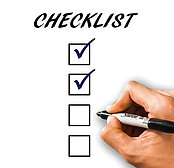
First and foremost….truth….. I have committed every single one of these “Don’ts”. ALL.
Do not be deterred if you have also checked off some of these or all – like me! We are human after all. But more importantly, if you are like me and a learning disorder comes through your door of which you barely know anything or you are riddled with “old school” thinking; then it is no surprise that you made some mistakes in dealing with it. No surprise at all. The critical thing at this point is to buckle up and move on by making appropriate moves.
Let’s dive into “Dyslexia Do’s and Don’ts For Parents” and hopefully learn a thing or two in how we can help and not harm.
DO: Evaluate / Diagnose
Trust your gut. Simple. As a parent, guardian or loved one, you are the best and most likely first to notice and question. Is your child struggling with reading, are they behind their expected reading level, do things simply seem off? Trust your observation.
Here are a couple things that you may notice that can raise questions on whether your child needs to be evaluated. Please note that this is not a complete list nor does it mean that if your child displays any of these then they are surely dyslexic. This list is meant to be a general guide.
- Slow to read or write
- Confuses letters
- Blurts out incorrect words without sounding out
- Difficulty concentrating
- Difficulty spelling
- Gets mentally drained or shuts down quickly
- Confuses words or sounds within a word
- Avoids reading
- Difficulty with math (especially word problems)
- Difficulty following several instructions
If you question it or notice some signs, the best course of action is to find out for sure. Oftentimes, teachers are equipped to recognize signs of dyslexia. It may be a good option to have a conversation with your child’s teacher. I will always be thankful to my daughter’s teacher who recognized this in her and advised me on it. The evaluation can be costly but there are free testing in some communities and schools that can help ease this burden.
I maintain that it is best to know. Remember there are different types of dyslexia, therefore, different courses of treatment and help. Once you are sure, then you can start on the right journey to help your child.
DON’T: Expect a Quick Fix
There is no quick fix. Please do not get carried away with thinking you can treat learning disorders like medication to the flu. Once you are on this journey, there is work to be done.
More than once I have found myself tired and frustrated with the situation. Frustrated because reading comes naturally to me, it is a love and here I am feeling like I have to force my child to read. Worse yet, it sometimes feels as if she is the most disinterested. There will be work to put it.
Luckily, there are tutors and mentors that can lend assistance in this area as well. Again, I would encourage you to have a conversation with your child’s teacher or the school. Some schools offer support like special classes, counseling, therapy. You should also look within your community and research avenues that can help your child like tutors etc.
DO: Read To and With Your Child
Most of us are of the mindset that you stop reading to your child once they’ve reached a certain age. For a long time, I myself stopped and, full disclosure, at times it just feels like a chore. I would encourage you to slowly change this view. Do not expect that it will all change overnight. Start small.
- Make it a group/family event or keep it comfy and cozy with just you and your child.
- Designate “reading night(s)” with the whole family. Each person can take a turn reading or one person can read.
- Pick fun books that interest everyone
- Have question and answer sessions
The aim is not to finish a book, rather the focus will always be to expose your child to words and expand their imagination. They will eventually build up a love instead of a fear of reading.
DON’T: Wait for “Natural” Progression
“It will go away in time.”
“When they get older it will fix.”
I am guilty of “leaving it alone” for some time. Luckily, I did not let this thinking overshadow all else. Dyslexia does not go away. Dyslexia goes with you into adulthood. We should be focusing on doing whatever we can to help make our kids’ lives a little better. If they cannot read and/or comprehend then school and every day life can tend to be a bit more difficult.
The fact is that with age and maturity your child will become better at reading and writing. Yes, this is natural. Imagine then how great they will be if they have your support, guidance and tutoring from a young age. It is imperative to remember that your support will matter the most to your child so that they do not feel they are alone in this struggle.
DO: Research
Research comes in various forms. There is something for every one.
From chatting with persons who may have gone  through a similar situation, sitting down with experts, reading books on the topic or internet searches.
through a similar situation, sitting down with experts, reading books on the topic or internet searches.
I would encourage you to learn what dyslexia is all about, learn about the different types of this disorder and how it affects persons diagnosed with same. Try to really understand what your child sees, hears and experiences. This can be hard. It was hard for me when I started looking at videos to get an idea on what she sees when reading. But it will also help you to actually put things in perspective.
The more you understand, the more help you can be.
DON’T: Stress – Yourself or Your child
Ahh yes! #1 offender here!!
I have spent countless hours stressing about the fact that my child has dyslexia (and ADHD in my daughter’s case). I stressed from the time the teacher relayed her suspicions, throughout the evaluation process (months, by the way), through the wait to get the diagnosis, to reading the diagnosis and trying to understand and come to terms with what was being reported. I stressed. What did I accomplish? Nothing.
Your worries passes on to your child. They know it, see it, feel it.
Find your own way to cope, if you need it, before overwhelming your child. Take time to talk about it, with others and with your child. Remember, as hard of a time you may be having, your child is also having a hard time. The news that you have any sort of disorder can rock you and you must be able to reassure your loved one that you are in it together.
Concluding: Do’s & Don’ts
Remember that we are not all painted with the same brush. What works for me may not work for you. There are several negatives routes that can be taken when trying to cope with this type of situation. My hopes is that you have learned a few things to do and a few things not to do.
Please feel free to share your experience in the comments below. We look forward to hearing from you. If you have any questions on this topic, please do not hesitate to place in the comments below.
Dee J.

Hi, helping kids with dyslexia is all about supporting them in simple ways. Firstly, if you think your child might have dyslexia, talk to their teachers. It’s better to know early. Second, tell your child they’re doing great – it boosts their confidence. Third, mix up how they learn, like using pictures and hands-on stuff. Keep a regular schedule to help them feel safe. Reading together is awesome; it helps them get better at reading and makes you closer. Remember, every kid with dyslexia is different, so do what works for them. Stand up for them in school, be patient, and cut down on TV and games – it helps them learn better. Sometimes, a tutor or therapist can really help. These ideas might sound simple, but they can make a big difference for kids with dyslexia.
Hi Jake, I am so glad that you mentioned “tell your child they’re doing great” – what a simple act with massive positive consequences! Kids really need to feel supported at all times, even when you lose patience. For a dyslexic child, this support is critical since they are most likely feeling left out or behind.